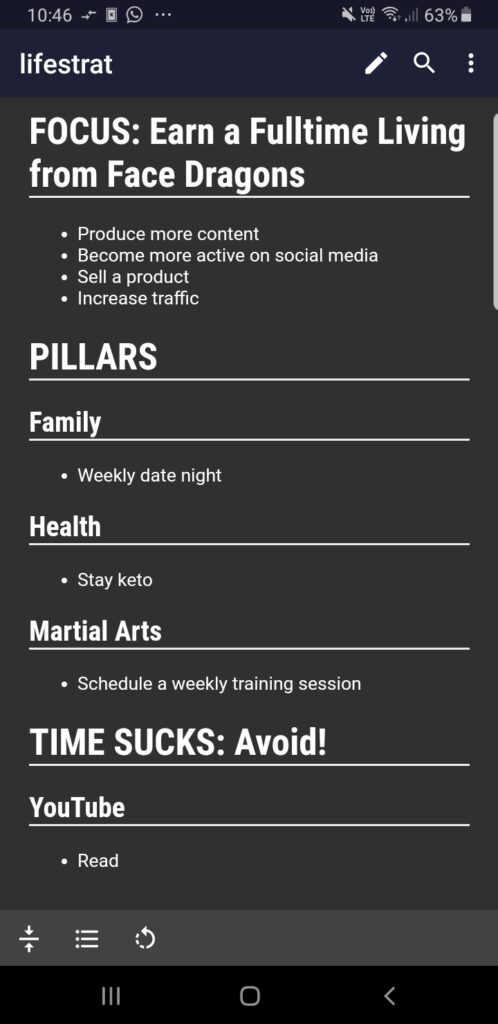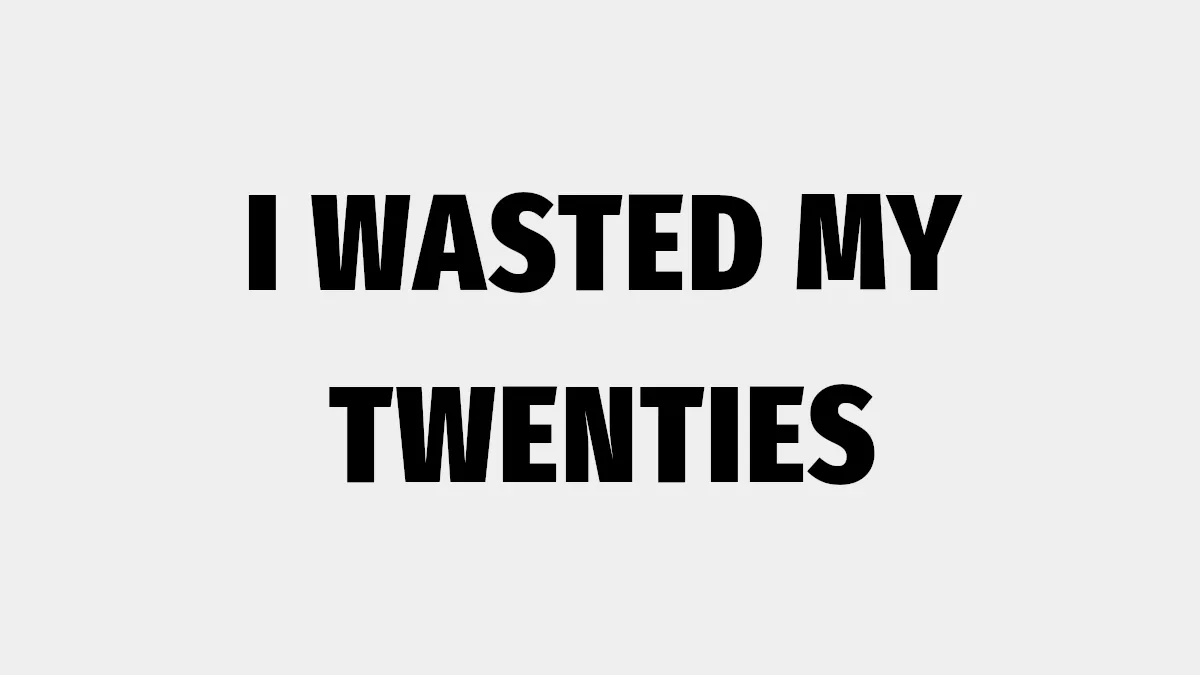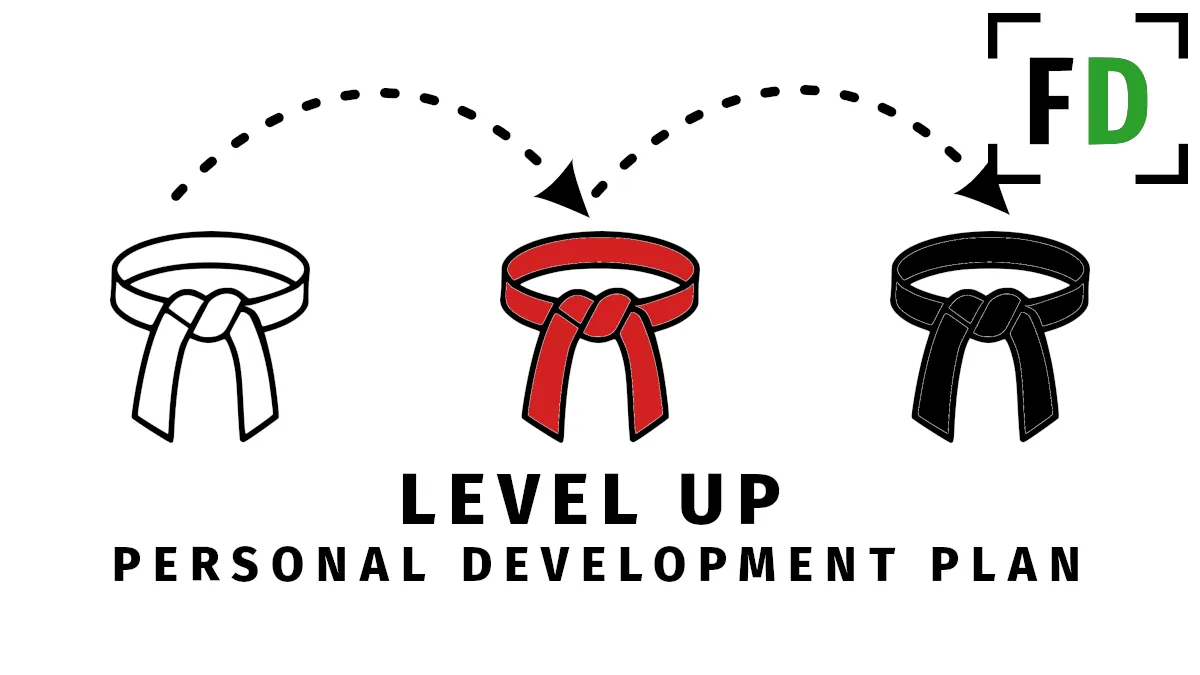If you’ve ever played a video game like World of Warcraft, you’ll know what it’s like to put hours into the game only to realize you picked the wrong class, learned the wrong profession, or wasted too much time and gold on things that don’t really matter. You didn’t have a life strategy.
You can do the same thing in life, too, picking up side quests and wasting time on unimportant things without knowing it.
Everything changes when you create your second character. You know what race, class, spec, and gear you want from day one. And you know the most efficient route to get them. You have a life strategy.
But you don’t get a second character in real life. You need a life strategy now.
This doesn’t mean your whole life will be scheduled and planned out, or that there will be no fun or spontaneous adventures, but you will have a direction you’re moving in and an idea of where you’re life is going.
Why You Need a Life Strategy

Do you care about juggling?
If you’re like most people, the answer is probably no. You don’t juggle, you don’t want to learn to juggle, and you have no strong feelings about others juggling.
It registers as a zero on the scale of “things important to my life.”
At the other end of the scale, you likely have something that registers as a 10:
- Your Family
- Your Job
- Your Faith
- etc.
Everything else lies somewhere in between.
The key to living the life you want is spending more time at the high end of the scale. I.e., if you love horses with a great passion, but you haven’t been riding for four years, don’t own a horse, and haven’t lived anywhere near horses since childhood, it’s only natural that you feel unbalanced. You feel like something is missing in your life – it is.
You Can’t Figure Your Life Out While It’s Happening
Our lives are complicated. Suddenly dropping a good job and a new apartment so you can move to the countryside to play with horses will cause more problems than it solves.
Aside from your job and house, you have other responsibilities, such as family, finances, social activities, and community. You also have other things to worry about, such as your health, fitness level, diet, and alcohol intake. But you have more abstract things on your mind, too, like politics, morality, philosophy, psychology, and art. You have hobbies and activities you do for enjoyment: music, sport, reading, your wardrobe, film, painting.
It doesn’t stop there; there’s your education, mindset, DIY, chores, and many more facets to your life.
Life really is complicated!
Without some kind of strategy for navigating it all, years will pass, and one day, you will realize that the life you have built isn’t the life you want.
Perhaps that’s where you are now.
By the end of the post, you’ll have your own life strategy, and it only takes three steps:
- Choose a focus
- Decide what’s important
- Avoid everything else
There’s a little more to it than that, but in broad strokes, that’s all it takes.
Choose a Focus for Your Life
There are no Olympic gold medal boxers who also have a gold medal in running, cycling, or any other event. No, you must focus your life on one thing if you want Olympic gold.
We mere mortals – even though we aren’t chasing a medal – can learn something from the greatest athletes humankind has produced.
Focus equals greatness.
It’s obvious, really. The writer focused on learning to play guitar won’t become the writer he’s destined to be.
But what if you don’t have a focus for your life? What if you have a job you don’t hate but at the end of the day, you’re tired and don’t feel like focusing on some other part of your life. It’s a common scenario, the OECD Better Life Index shows that the United States ranks 29th among 41 developed countries for work-life balance with a score of 5.2/10.
That’s the “quiet desperation” Henry David Thoreau was talking about.
“The mass of men lead lives of quiet desperation”
Henry David Thoreau
You won’t be able to change your life overnight, but the question you must ask yourself is:
Do you want your life to still be this way in 10 years’ time?
If you don’t, you need to find a focus for your life (even a temporary one.)
Here’s how
Start with the list below of common life areas, and add areas specific to your life. Go into subcategories, too, so within “job,” you may have “networking,” “making sales,” “writing reports,” etc. Or, within hobbies, list the activities themselves. Artistic may be “playing piano,” or “sculpture.”
Remember, these can include things you want to do, even if you have no experience with them presently.
- Job
- Family
- Social
- Hobbies
- Finance
- Health
- Fitness
- Artistic
- Education
Imagine your life has a clear focus in ten years’ time; what do you want it to be?
If you look at your list and the one thing that sticks out is a hobby you have – archery, for example – and you would love a life where that’s where your time and focus are spent, a life where people say about you, “Oh him, yeah the archery guy,” you’ve found your focus.
So you should just spend all your time at the range or playing around with your bow, right?
No. That won’t get you there.
It will take time and traveling down other paths before you arrive at your archery lifestyle.
Let’s Be Precise
Before going down those paths, let’s pinpoint the destination exactly. We’re going to use the archery example, but you should do this with whatever focus you want you’re life to have.
- Archery for fun? Going to the range every evening and weekend
- Archery for a job? Teaching archery
- Archery for a business? Opening your own range
- Archery for a side hustle? Starting an archery YouTube channel
- Archery for victory? Competitive archery
- Archery for food? Going bow hunting
You could have any one of these different focuses and still be known as “the archery guy,” but the route you take to each destination is different, so figure it out as soon as you can.
A Detour

Before bolting directly towards your new life goal – like a WoW character may have side quests – there may be some side roads you need to take.
It would be foolish to quit your job today and become an archery teacher, especially if you have bills and a family to support. No, you can get there, but it won’t be today.
You need to accept a different focus for the time being – a side road that will lead to a highway that takes you to your destination.
Some of the side roads our archery enthusiast may need to take:
- Saving money
- Improving their skills
- Finding some students to teach (before quitting their job)
- Moving to somewhere with more potential
- Building an online presence
Imagine he spent the next year earning extra money wherever he could and saving as much as possible by reducing his spending.
Now, he’s living with a purpose. He’s using his life strategy and making progress with it.
At the same time, he works on his archery skills. After a year, he spends the next six months finding a few students, getting some experience, and making money with his archery, all the while slowly building his online presence by posting on social media.
After 18 months, and with a few students and some savings to tide him over, he takes the plunge and quits his day job.
After just a year and a half, this man has a completely new life.
- What do you need to do to get to your precise focus goal?
Find the Pillars That Hold Up Your Life

Go back to your list of life areas.
What about everything else on it? Some of those are pillars that hold you (and your life focus) up, and others are just irrelevant things you visit occasionally but don’t need to spend time and energy on.
Simply knowing which are which is a powerful message to your mind about where to put your time and energy.
Remember the “things important to my life” scale? Here’s where you’ll need to use it.
You don’t need to actually give everything a score. Most of the areas of your life will be quickly categorized as important, unimportant, or somewhere in the middle.
The important ones are your pillars. They could be
- Family
- Friends
- Job
- Health
- Fitness
But perhaps your reading habit, or love of bakery, or your pets are pillars for you. You just need to figure out what the important parts of your life are so you don’t ignore them.
You can easily see how these five areas might be pillars that help hold up our example’s dream of teaching archery.
- The support of his family might make it possible
- His friends help him destress while struggling to make the change
- His job provides the money to make it possible
- Without his health or fitness level, it wouldn’t be possible at all.
But it’s not enough to know you have these pillars. You actually need to spend time with them.
For some of them, it may be easy, e.g., you’re already meeting your friends regularly. But for some of your pillars, you might need motivation or to schedule time so that years don’t pass without doing the things you want to do.
Perhaps learning martial arts is something you’re passionate about, but you haven’t gone to the dojo for a few years.
Naming the pillar is a great start. But you need an action to go with it. It could be:
- Find a dojo nearby.
- Block out time every Monday evening to go train.
- Buy a heavy bag for the garage.
Everything Else Is Unimportant
Warren Buffet calls these things “avoid at all costs.” They are the time sucks. Activities that take from you but give nothing back. It could be watching TV, going to McDonalds, or a friend that you don’t really like.
If it didn’t make your list of pillars that hold up who you are and who you want to be, you must seriously consider why you are spending any time doing it.
If it’s a job or responsibility you have, it’s understandable that you quit instantly, but are you making moves to remove it from your life in the near future? If you’re not, you need to scroll up and reread.
Build a Complete Life Strategy

OK, you have a roadmap to your life’s focus. And you know your life’s pillars, and the time sucks. Now, it’s time to create a clear life strategy.
You might want to do this in your notebook or in a second-brain software like Obsidian if you have one.
- At the top, in big, bold letters, write your life’s focus (remember to be precise.)
- Then, in bullet point form, write the side roads you must go down before getting there.
- Next, List the pillars of your life and add an action.
- Finally, list your time sucks and what you could do instead.






